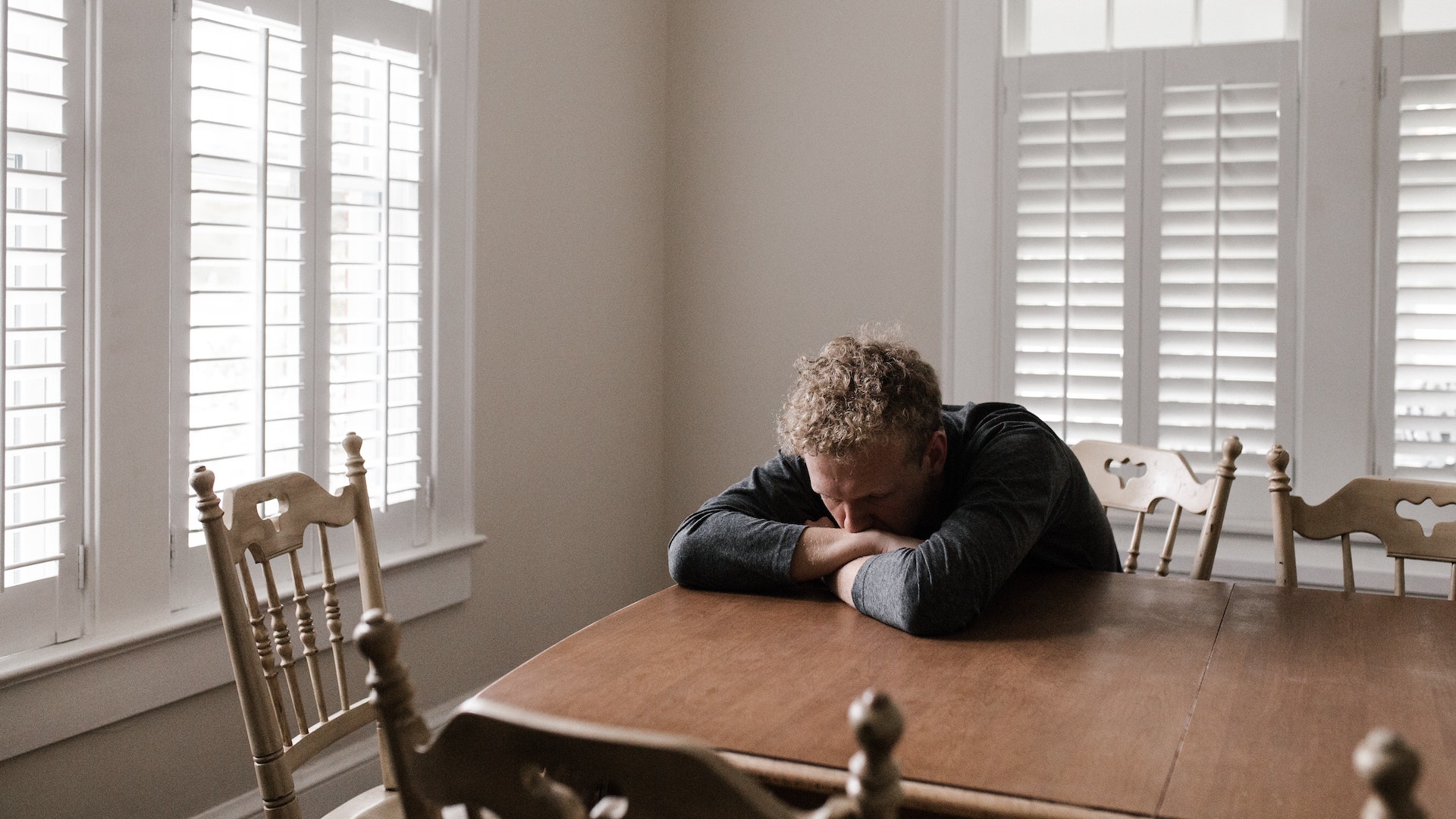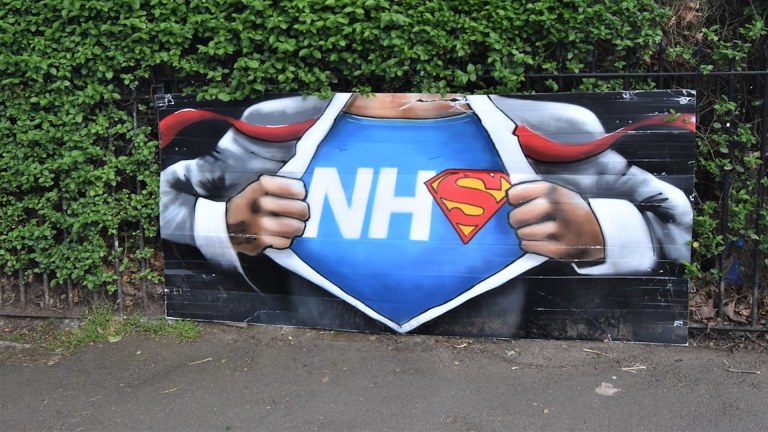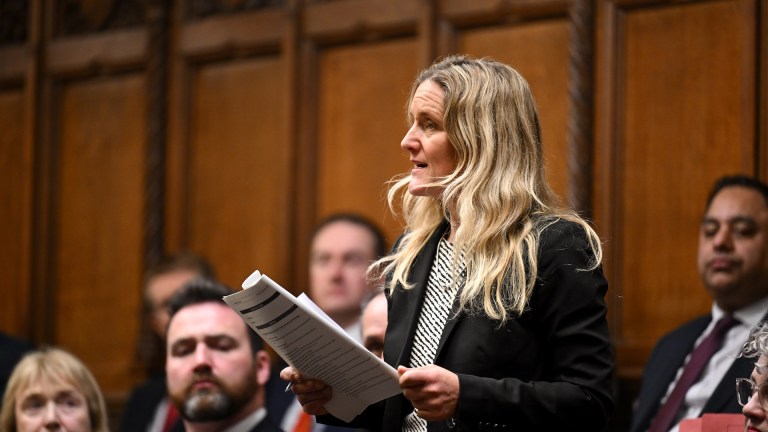Around one in five adults reported experiencing symptoms of depression in January 2021, according to the Office for National Statistics. That figure has more than doubled since before the pandemic. Disabled people, financially insecure families and those who are unemployed were most at risk.
The Covid Realities project, which collects testimony from parents and carers in poverty, found evidence for a link between the universal credit system and poor mental health. The five-week wait for a first payment, strict requirements for job searching and benefit cap were all shown to have a detrimental effect on claimants’ wellbeing, with the study finding a higher rate of antidepressant prescription in areas with more people on universal credit.
“I am currently being forced to look for work and to show evidence of looking ’online’ for work for over 20 hours a week,” Holly W, a lone mother of two in North East England, told researchers. “With no wifi and having to pay for data I am unsure of how that is physically possible.
“I am also expected to homeschool my 6-year-old three days every week, and my daughter two weeks in every month. I cannot see how a job will work. The pressure is immense and there’s the threat of universal credit stopping payments. It’s a shambles and children already are becoming poverty stricken at present. This stress just adds to this.”
The number of people claiming universal credit doubled to six million between March 2020 and the beginning of this year, largely driven by redundancies and income cuts during the pandemic. Those claimants now face an £80-per-month cut in payments come September.
People in poverty often develop coping strategies, Pybus explained, which help them cover essentials despite struggling to make ends meet. Lockdowns meant those ways of “making a budget stretch further and further” were near impossible, she said, demonstrating the precarity under which disadvantaged people operate at the best of times.
Advertising helps fund Big Issue’s mission to end poverty
“Affording a healthy diet might mean shopping around different places to get the best deals and reduced items,” she said, “People would rely on charity shops for clothing, or turn to friends and family for help. The last year has been particularly difficult for people who were forced to find ways that, previously, made things a little bit more manageable, and meant they could still try to look after their health.”
Research frequently highlights income inequality as the “most fundamental risk factor” for people’s mental health, according to Shari McDaid, head of evidence and impact for Scotland and Northern Ireland at the Mental Health Foundation.
“Not having enough income to provide a decent standard of living is strongly associated with people having worse mental health, particularly anxiety and depression,” she told The Big Issue.
“Societies that have a wider income inequality gap also have greater levels of mental health problems. That’s the case in England. Social comparison can play a big role, you have people in lower economic groups comparing themselves to people who are better off, and it causes lower self-esteem and anxiety.”
But it is the “material deprivation” faced by people in poverty which “really puts strain on their mental health,” McDaid said. When people struggle to meet their own daily needs – food, warmth, shelter and more – as well as their families’ needs, it can interfere with their ability to take part in things accepted as crucial to mental wellbeing, such as developing strong relationships.
Advertising helps fund Big Issue’s mission to end poverty
“It’s harder to be the most nurturing parent when you’re so preoccupied with having to make sure you can keep the electricity going or put food on the table,” McDaid said, “The scarcity and the mental space that scarcity takes up in people’s lives gives them less time for looking after oneself.
“Children are very much affected by poverty in their households too. They’re not responsible for the household, yet they’re two to three times more likely to develop poor mental health.”
Conversely, poor mental health puts people at a higher risk of falling into poverty. Being unable to work, for example, plunges people into “poverty through illness”, Pybus said, forced to rely on the benefits system which has been long-linked with increased hardship and is particularly difficult to navigate for those grappling with mental illness.
The risk factors for poor mental health are wide-ranging – including discrimination, unemployment, abuse, poor housing and the fear of eviction – and in almost all cases are interlinked.
“We could address a lot of mental health problems – and prevent a lot of mental health problems – if we had a better income support for everybody who might need it,” McDaid said. “The benefit system is so hard to get through and the assessments are so difficult. Constantly having to prove that you don’t have a lot can be very, very stressful. There is evidence that where there are fewer conditions on someone’s payments, they have better mental health. This is something which in many cases could be resolved through a different approach to welfare.”
The uncertainty and fluctuation of benefits payments ramp up the pressure on people’s mental health, according to Rachel Casey, a policy officer at the Joseph Rowntree Foundation.
Advertising helps fund Big Issue’s mission to end poverty
The £20-per-week universal credit increase – introduced at the start of the pandemic, and still not extended to people on so-called legacy benefits who faced higher costs during the Covid-19 crisis – is set to end in September. It has been described by some as “the difference between having barely enough and having to go without”.
Ministers said keeping the increase would cost the country £6bn per year. Meanwhile mental ill health costs £105bn per year in England alone.
“It’s impossible to justify weakening vital support for families,” Casey said. “Far too often, the systems that are supposed to protect us instead make life harder for people. Especially young people on low incomes.
“A strong social security system doesn’t just protect families from harm when they’re struggling to stay afloat, it pulls them out of hard times and opens up their opportunities and options as well. Ensuring people can afford a decent standard of living is a hugely important factor in mental wellbeing.
“The risk is that if we don’t, I think we will see a worsening in our health as a nation.”










